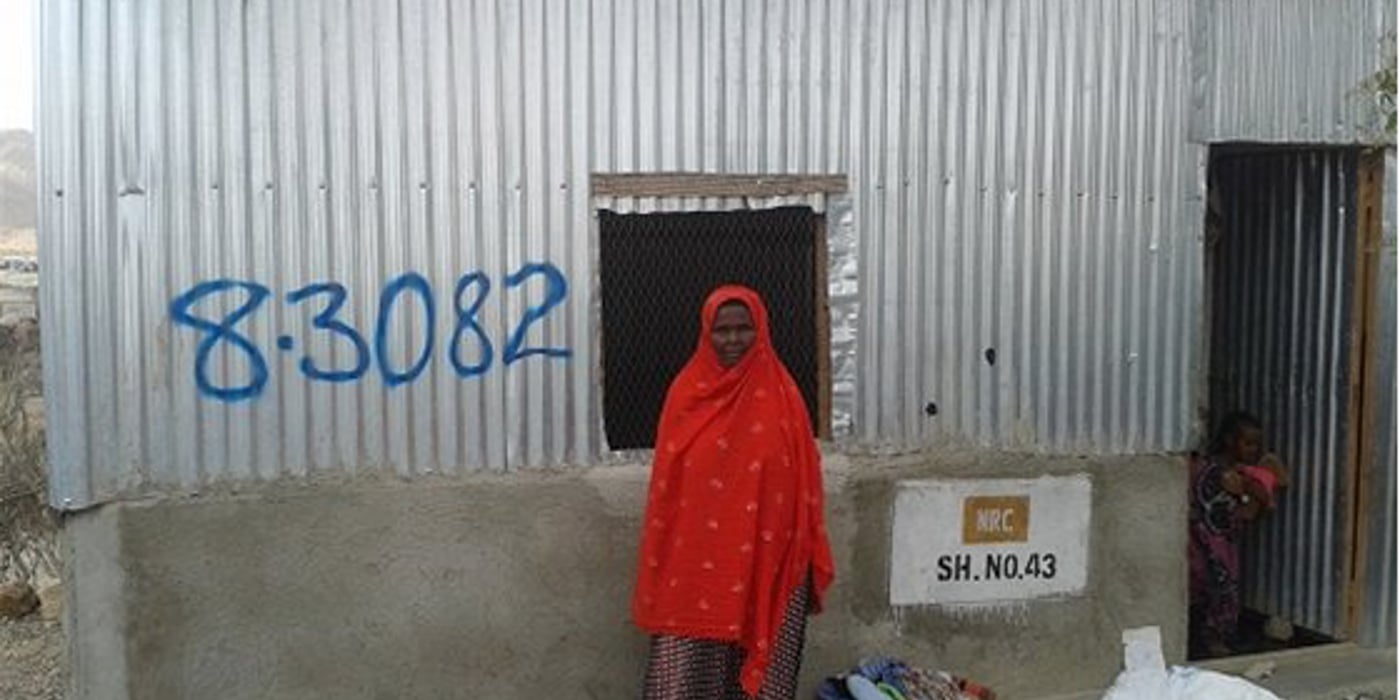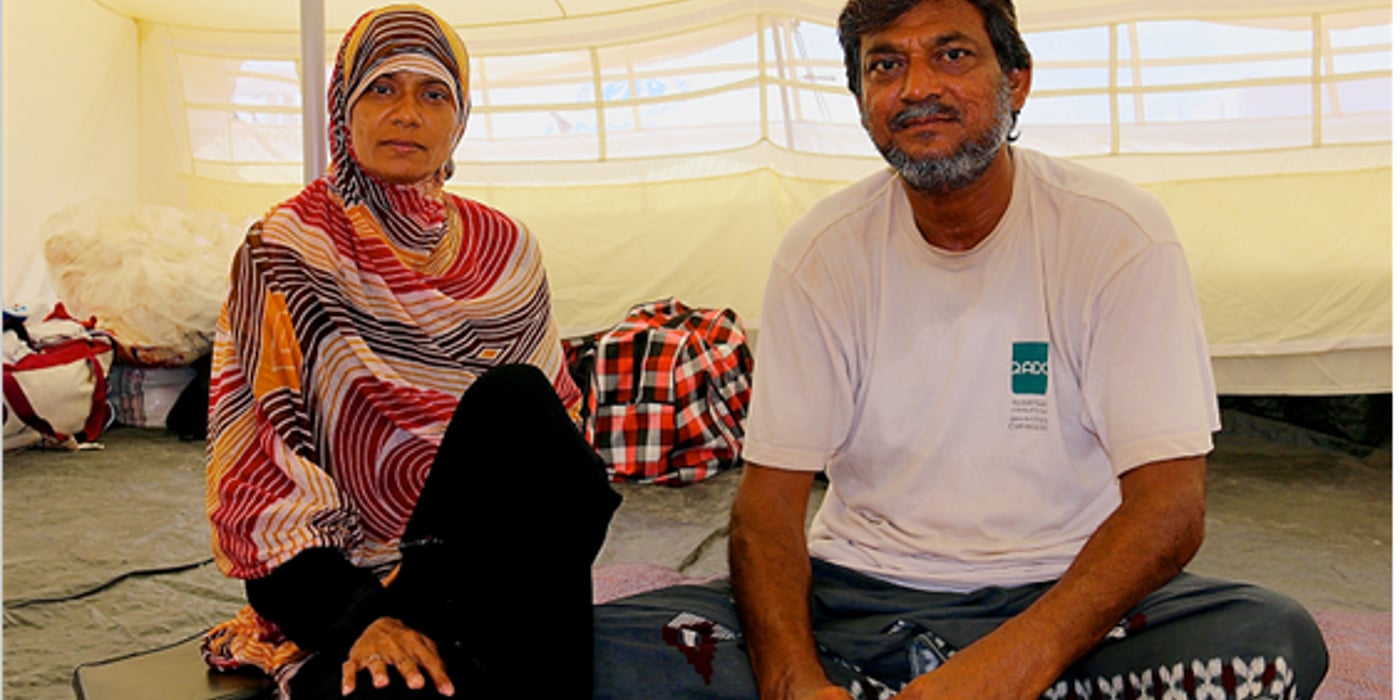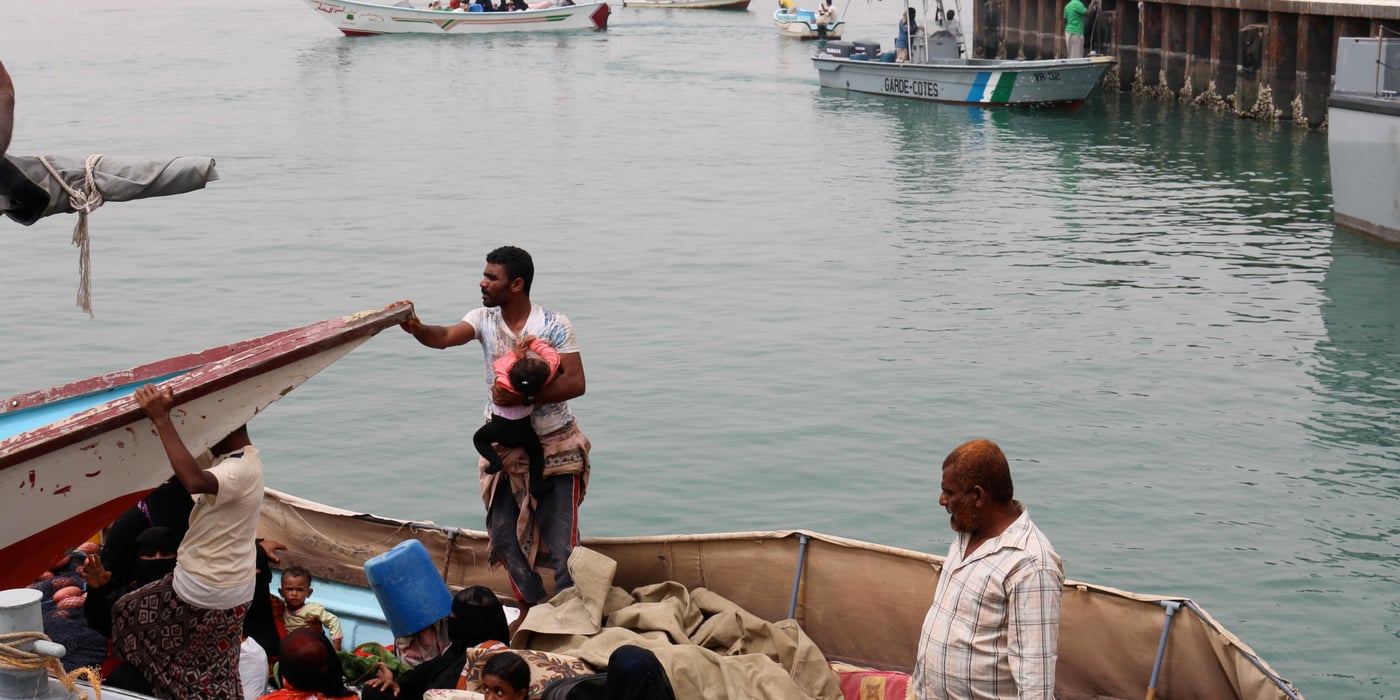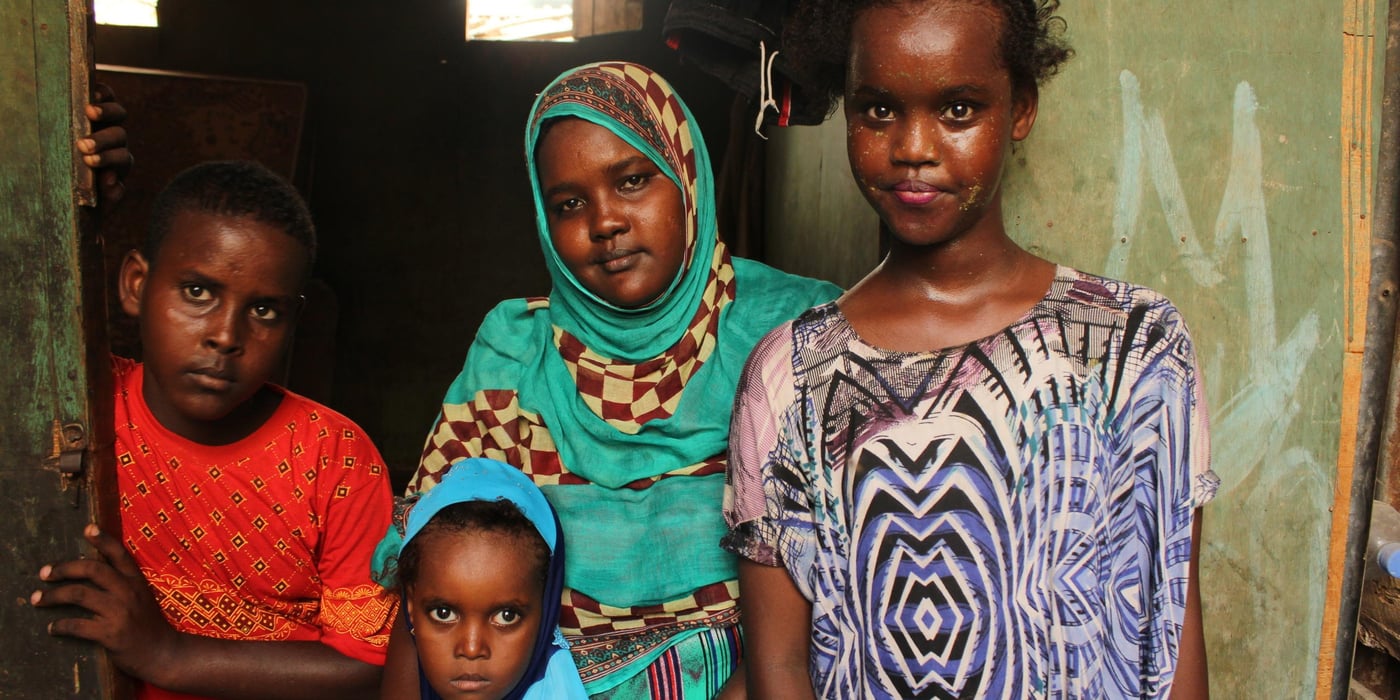
The family is rebuilding their lives with smart aid from the Norwegian Refugee Council (NRC).
“I was born here in Djibouti city. Sometimes we experience heavy rainfall, but I have never experienced such a destructive storm like Cyclone Sagar,” Deka says.
Saving her children first
On 20 May, rough winds and torrential rains swept across Deka’s neighbourhood, flooding her kitchen and living room. The previous day she had hurriedly moved her family to a nearby school following flood warnings from the city administration.
“Sensing danger, I moved the children to a nearby community centre, but went back inside the house during the storm to protect my things from being swept away or stolen,” she says.
Cyclone Sagar caught many by surprise. While the government launched a quick appeal for assistance, aid agencies had to raise emergency funds to be able to assist the many people who lost their homes.
Deka receives cash support from NRC, funded by the Start Network.
A freedom of choice
Traditionally, people affected by crises have been given food and other household items. With cash vouchers, Deka can buy exactly what her family needs, and in turn put money into local markets.
“People can trade in the vouchers over the counter and receive the food and cleaning items of their pick. The voucher option provides flexibility for Deka to choose what she needs most,” explains Meskelu Adane, NRC’s shelter coordinator for the cyclone emergency response in Djibouti.
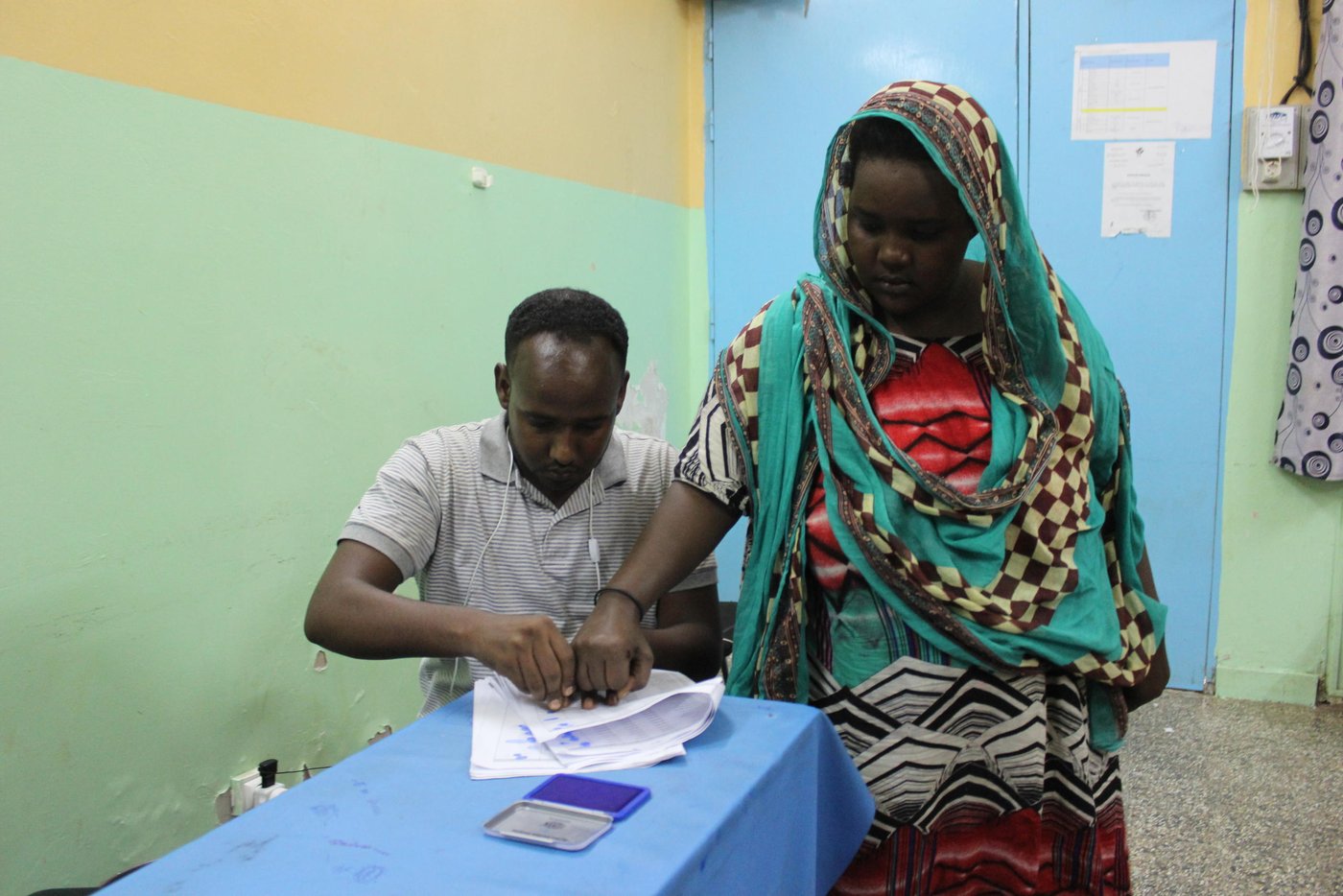
Before Deka can use her vouchers, she must register her thumbprint. This way, no one else can use her voucher.
The first cash voucher she receives is for hygiene and sanitation products like soap, scouring powder, scrubbing pads or other items that she can choose from the shops. She has also received a voucher from the World Food Programme to help her purchase food. The total amount of cash voucher support amounts to 28,000 Djiboutian franc, an equivalent to 157 US dollars.
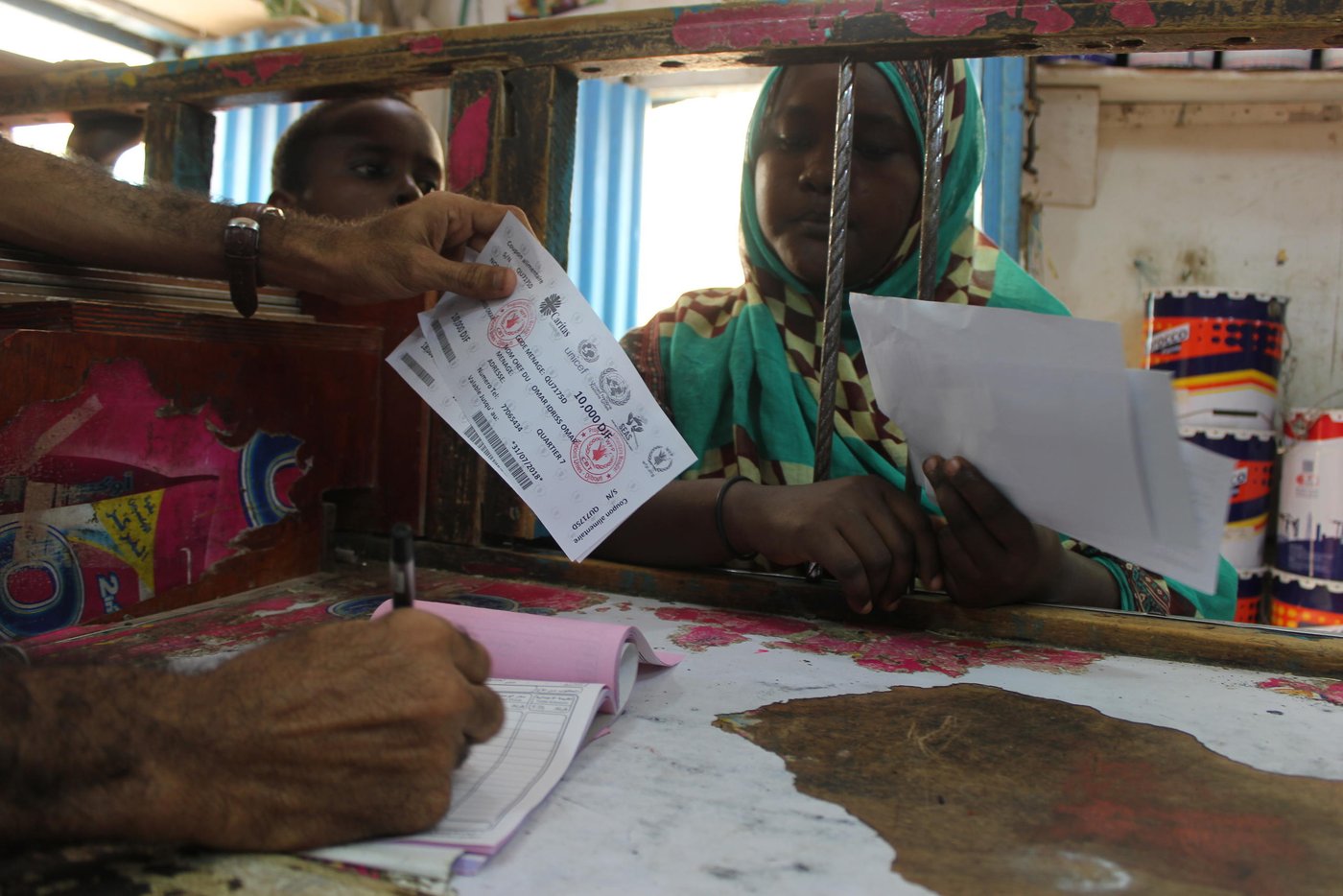
Food on the table
Deka is relieved that she will have food for her family in the coming days.
She has bought cooking oil, pasta, green peas, rice and margarine. She will use her other voucher to buy washing detergent and sleeping mats.
“Today I am buying the food because we need to eat dinner. Later I will go the supermarket and buy a blanket and sleeping mat,” she says.
With cash support, the family will soon be able to move back into their house. Deka can buy construction materials to rebuild the damaged parts of her house. Raging floodwater weakened the main door and flooded the house. While her children have returned to their house, she still needs to replace the door, cement the floor as well as install barriers to keep water from flowing in.
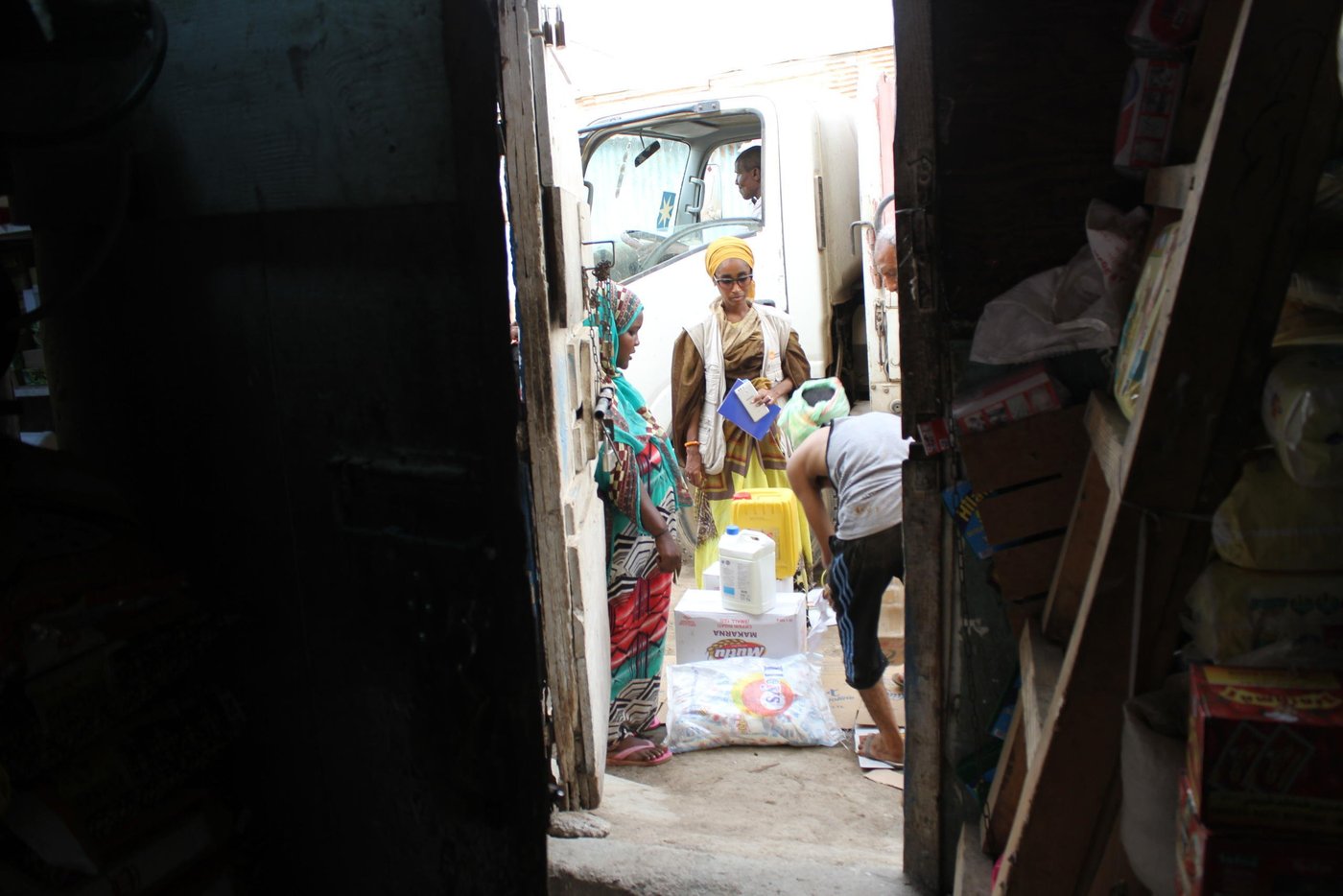
“The cash vouchers to communities affected by the cyclone have boosted their recovery and given them the power to rebuild their homes and assure their survival,” says NRC’s Meskelu Adane.
“It feels good to afford a meal for the children. I see new respect and appreciation in their eyes when I provide for them like a parent should,” Deka says and continues: “Parenting is a very big responsibility. It is not about issuing instructions to your children all the time. You also have to show that you are capable of preserving the dignity of the home. You have to be committed to their welfare during good times and bad times.”
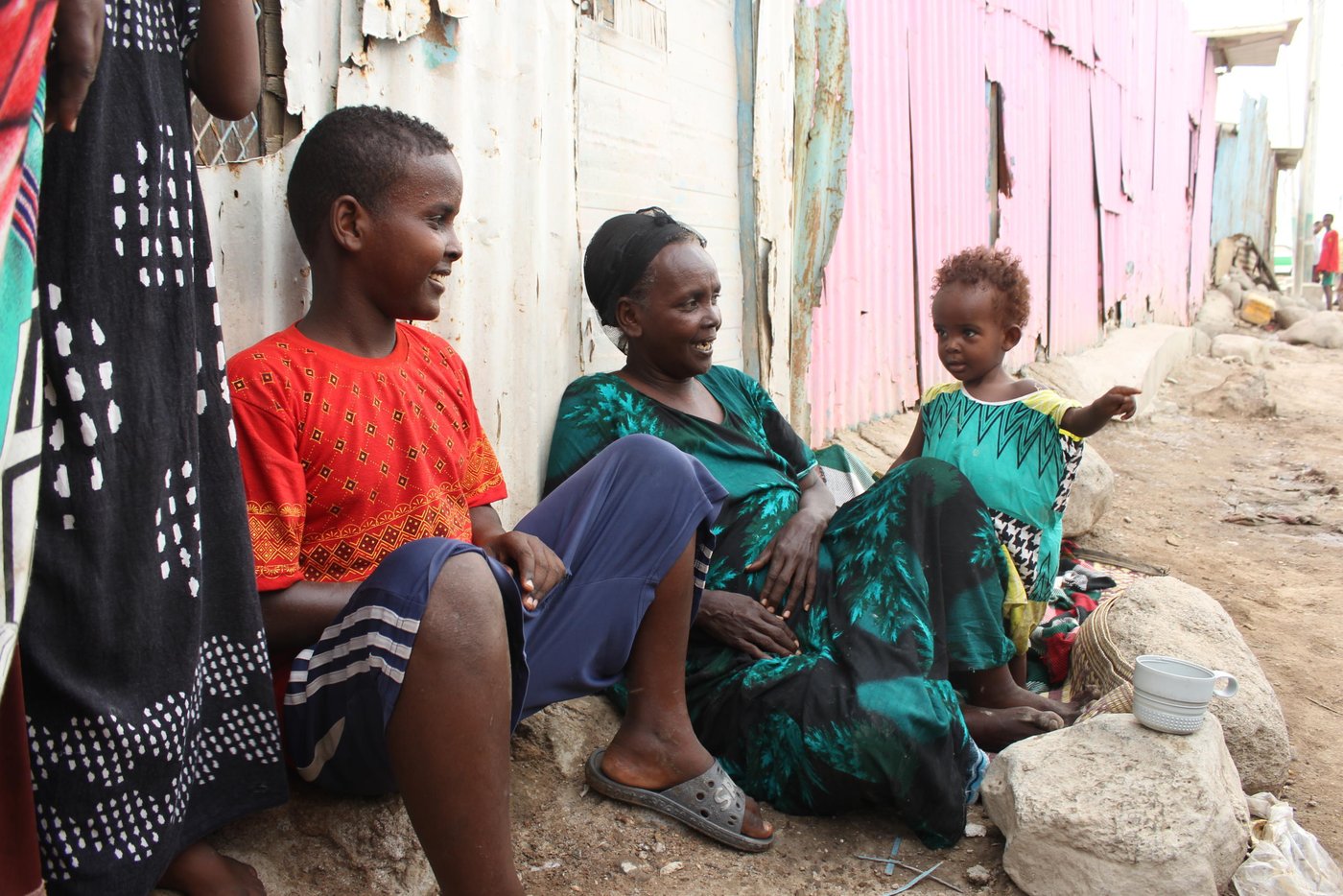
Deka’s three children are all in school, and she plans to keep it that way.
To earn a living, Deka buys beef from the local meat distributor and slices it into small pieces which she sells at retail prices. She earns an average of three US dollars a week from this venture, which is not enough to make ends meet.
The cash vouchers are vital to keep her children in school and food on the table.
“Cash support is a flexible alternative that has given the people of Djibouti room to plan their home reconstruction together with other priorities. In the end, they have full ownership of the results. It is a win for all,” says Eric Ndayishimiye, NRC’s area manager in Djibouti.
Read more about our work with cash and vouchers here.


